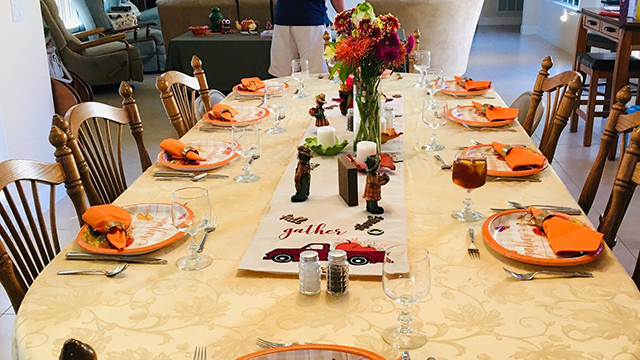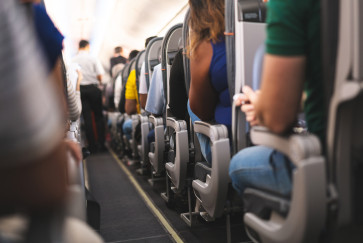Thanksgiving is right around the corner and COVID-19 cases are spiking again. Does that mean a Zoom turkey dinner is in your future? Unfortunately, yes, says Northwestern Medicine pulmonologist and critical care physician Dr. John Coleman.
“Celebrating Thanksgiving with anyone outside of your immediate household (people who live with you) is extremely risky and I advise against it – there are too many variables to consider,” said Coleman, associate professor of medicine (pulmonary and critical care) and neurology at Northwestern University Feinberg School of Medicine.
The minute you leave the house – even just for a coffee – that invalidates the quarantine.”
Associate Professor of pulmonary and critical care medicine
“We tend to let our guard down around those close to us, and I worry mask use will not be enforced,” Coleman said. “Over the last eight months, I have seen too many people end up on a ventilator from just casual contact with their loved ones. It is better to spend one year of holidays without family than sacrifice the next 10 to 20 years without them. I have encouraged my family to skip Thanksgiving this year as we have several high-risk family members. I do not want to see them in our ICU.”
Quarantining, testing only get you so far
“There are many people who think they will quarantine and get tested and that should be enough. It is extremely difficult to quarantine for 14 days," Coleman said. "The minute you leave the house, even just for a coffee or gas, that invalidates the quarantine.
“If you get tested and then stay in your home and go NOWHERE until Thanksgiving, then the test is valid. But in my experience, this degree of caution doesn’t happen. A negative COVID test is only good until your next interaction with a person. If you are bringing together several family members of different ages and employment, it is impossible to guarantee that everyone is clear and not an asymptomatic carrier.”
A negative test is a helpful tool, but not a free pass to do whatever you want’”
‘There is a lot of variability in testing’
“Getting a COVID test is always a good idea if you are symptomatic or had close personal contact with someone who then turned positive," Coleman said. "But there is a lot of variability in testing. Are you getting an antigen test or PCR test? Was it a nasal, oral or saliva test? Was a good sample obtained?
“I have seen numerous cases in which a person tested negative and then tested positive one to two days later. Was it a poor sample or was there an exposure in the interim? A negative test is a helpful tool, but not a free pass to do whatever you want."
If a family has recently recovered from COVID, can they celebrate safely?
“If everyone in your home had the virus around the same time and have all cleared it, then you should be good to celebrate and enjoy together," Coleman said. "If you are inquiring if different people from different homes who have all been COVID + can they get together, it is unclear.
“We are still unsure how long COVID antibodies are good for and how protective they are in preventing reinfection. We know that the virus can adapt and mutate. It is still unclear if COVID has different mutations, which would explain why some people end on a ventilator for weeks in the ICU and other are asymptomatic. Is this related to a person's immune health or mutations in the virus? It is unclear.”


